Community Justice and Reconciliation Report: Insights from Ha-Lesala and Ha-Petlane
Ha-Petlane Community during the LCN-SIRD organized dialogue
Introduction
Strategic Institute for Research and Dialogue (SIRD) in collaboration with Lesotho Council of NGOs (LCN) funded by the Africa Transitional Legacy Fund popularized the African Union Transitional Policy in Lesotho’s 10 districts. This report presents the consolidated outcomes and community sentiments shared during two recent local dialogues facilitated by LCN-SIRD: one conducted at Ha-Lesala, Semonkong in the Maseru District on 15 February 2025, and the other at Ha-Petlane, in the Mafeteng District on 14 February 2025. The discussions provided a platform for ordinary citizens to voice their concerns and hopes regarding justice, reconciliation, traditional leadership, and governance in Lesotho.
Ha-Lesala Community during the LCN-SIRD organized dialogue
Traditional Justice vs. Modern Legal Systems
In both communities, there is a prevailing sense that the traditional justice system better served the interests of victims and promoted community healing. The dialogue of participants of Ha-Lesala below illustrate their concerns regarding the contemporary justice system.
Ha-Lesala Community during the LCN-SIRD organized dialogue
Similarly, at Ha-Petlane, one participant emphasized the community-oriented nature of traditional justice. The emphasis was still on the survivors or victims benefiting from the compensation instead of the court or government alone. This sentiment reflects a broader nostalgia for a system where restitution was direct and visible, reinforcing social accountability. The concern is illustrated in the image below.
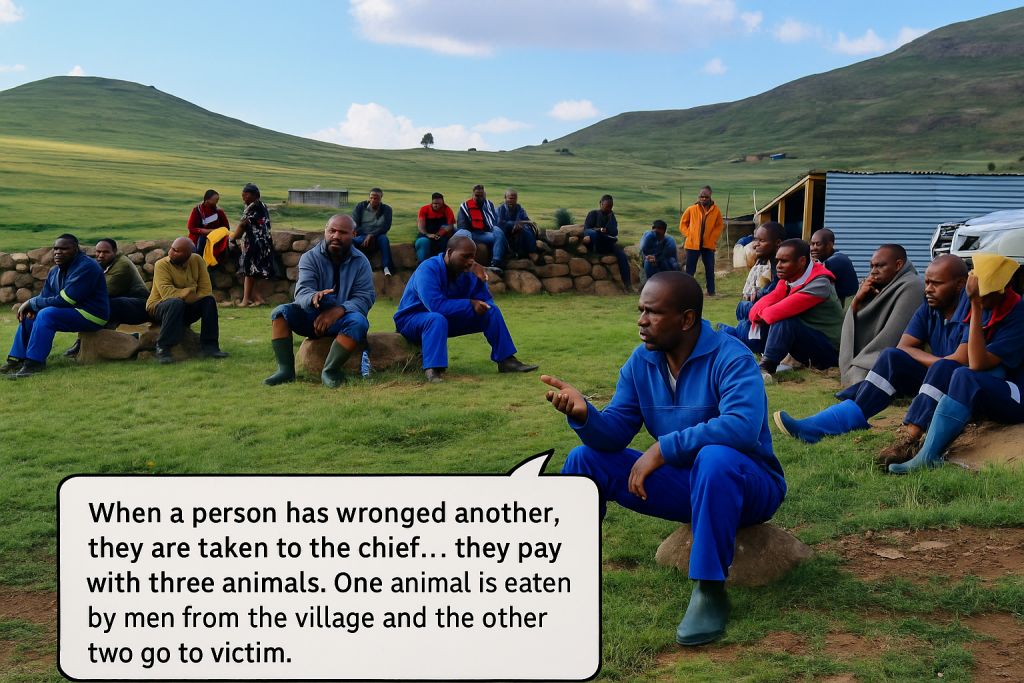
Ha-Lesala Community during the LCN-SIRD organized dialogue.
Participants expressed concern that modern legal frameworks lack effectiveness and responsiveness. In Ha-Lesala, criticism was leveled against current court practices especially because the survivors have to live with perpetrators for a long time in the community during their bail period.
Additionally, some advocated for more tangible punitive measures under traditional law. A man proposed that “if someone kills another, they should pay with ten cows,” underlining the perceived deterrent value of customary justice.
Frustration with Bail and Delayed Justice
A recurring concern was the misuse and abuse of bail. One man from Ha-Lesala argued plainly: “Bail should be abolished in the country.” This view was echoed by others who felt that the bail system emboldens criminals and perpetuates a cycle of violence.
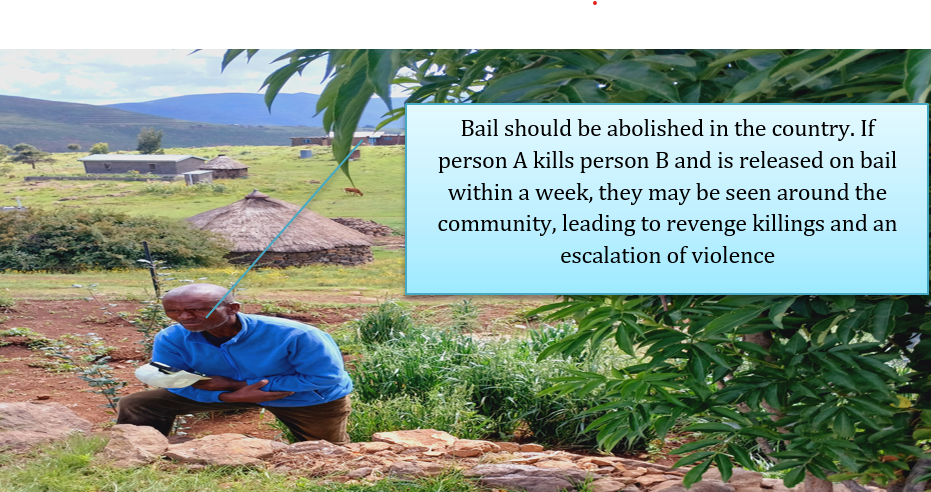
Ha Lesala Commununity during the LCN-SIRD organized dialogue
The failure of the courts to resolve cases promptly was seen as another major issue. People stated that “the courts are failing… by delaying cases,” which leads to repeated bail grants and an increased risk of reoffending. The community emphasized the need for swift and decisive legal action, with proper police support to carry out timely investigations.
Governance and Political Disillusionment
In both dialogues, there was widespread disenchantment with the current political landscape. Participants felt sidelined from meaningful decision-making. In Ha-Lesala, residents lamented that politicians “should return to communities after elections to learn about the real needs of the people,” instead of making hollow campaign promises and then disappearing.
Ha-Petlane residents were even more vocal about their dissatisfaction. One woman stated pointedly: “Politics must end. The person we elected, when he or she win elections, forgets about us.” Another participant criticized political opportunism and demanded a return to traditional governance by arguing that: “Politics (democracy) removed the Chief from governance… claiming that chiefs are bloodsuckers and self-centered.” The participant appealed to the government to reinstate the powers of chiefs.
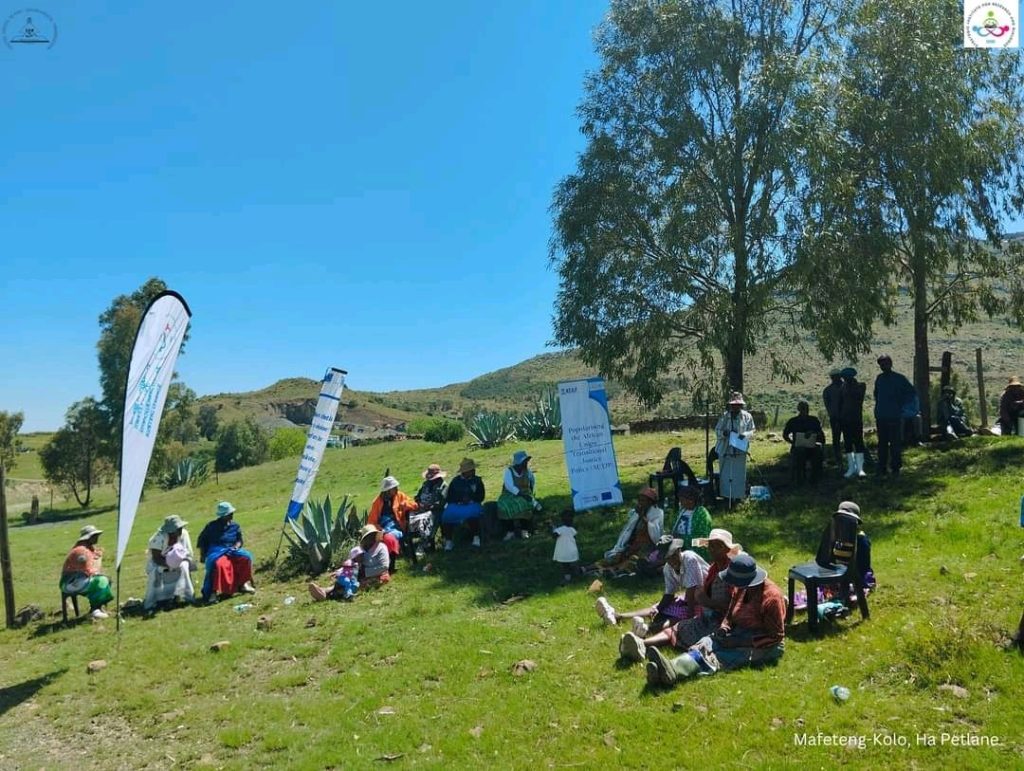
Ha Petlane Community during the LCN-SIRD organized dialogue.
There were many strong calls for empowering local leaders. “The King should not be silenced, the King should rather be empowered to work with the chiefs, work with advisory departments, and work with pastors, who were praised for historically promoting peace in Lesotho,” noted one woman from Ha-Petlane.
Participants overwhelmingly supported reinstating traditional structures in governance. In Ha-Petlane, a man emphasized: “As people, we should use justice and reconciliation… only if the Chief is involved.” There was a clear desire to reintroduce community-led systems for resolving disputes and restoring order.
Corruption, Mismanagement, and Resource Allocation
Both communities raised alarm over government corruption. In Ha-Lesala, people criticized the lack of electricity in their communities despite seeing infrastructure in villages nearby. In the same discussion, frustration was voiced over questionable government spending, particularly the allocation of “lunch money for parliamentarians,” which participants suggested should be redirected to more pressing public needs aimed at enhancing lives and livelihoods or ordinary citizens.
Ha-Petlane residents also believed the state was plagued by unaccountability. The argued that money disappears in the government departments and offices. Despite knowing those who are responsible no action is taken against them. , The participant also further accused security forces of abuse of powers: “Soldiers and police beat us… there is no peace and justice.”
Community Vigilance and Participation
An innovative solution proposed by participants in Ha-Petlane was the empowerment of community vigilantes. “The government should give community policing committees (Mahokela) power,” said one woman, “because when they are in charge, we can express our complaints better.” This suggestion highlights a yearning for grassroots mechanisms of justice, accountability, and local empowerment.
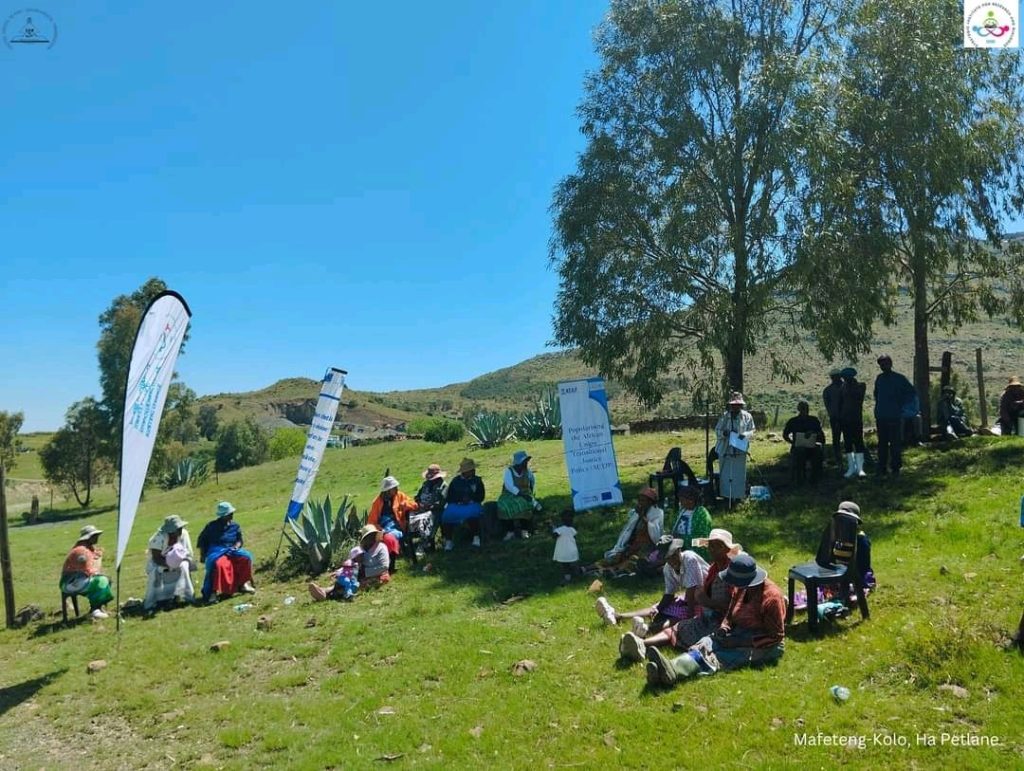
Ha-Petlane Community during the LCN-SIRD organized dialogue.
Conclusion and Way Forward
The dialogues in Ha-Lesala and Ha-Petlane underline a deep-rooted discontent with the current justice system, a longing for the return of traditional structures, and an urgent plea for political and judicial reforms. The communities call for:
- Reintegration of Chiefs and Traditional Courts into the justice system.
- Abolition or Reform of Bail to prevent repeated offenses and ensure community safety.
- Speedy Legal Proceedings to deter crime and deliver timely justice.
- Community-Driven Governance that holds politicians accountable.
- Transparent Resource Management and redistribution of state funds for essential services.
- Empowerment of Local Vigilantes (Mahokela) and Elders as instruments of justice and reconciliation.
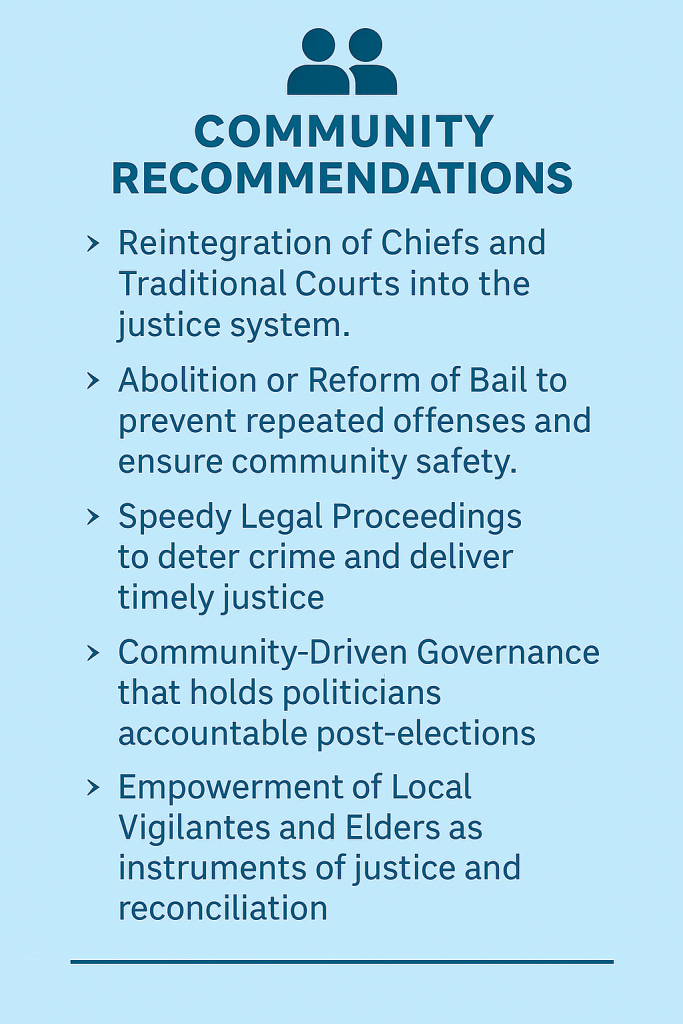
Ha-Petlane and Ha Lesala Communities’ recommendations during the LCN-SIRD organized dialogue.
The perspectives shared by community members underscore the importance of inclusive participation in the implementation of transitional justice. For such a process to be genuine, it must actively gather and consider the diverse opinions of all citizens. Listening to these varied voices ensures that critical elements necessary for justice and reconciliation are not overlooked. Despite their diversity, the views expressed above converge around a shared aspiration: a Lesotho where justice is accessible, reconciliation is meaningful, and leadership remains accountable to the people.

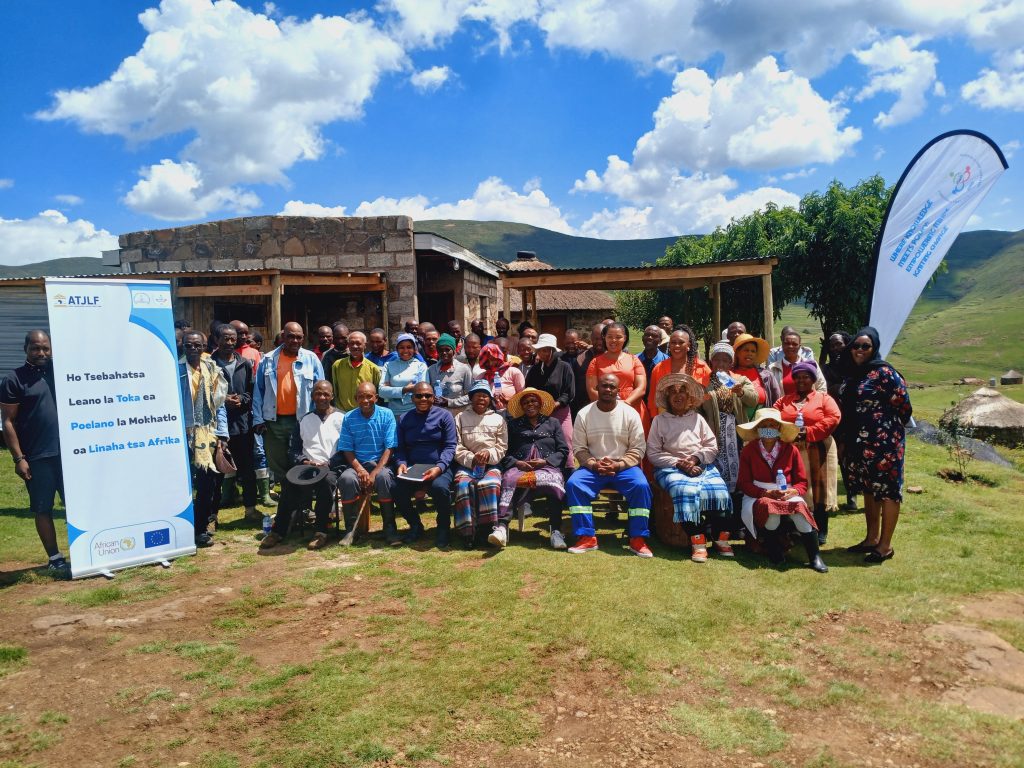
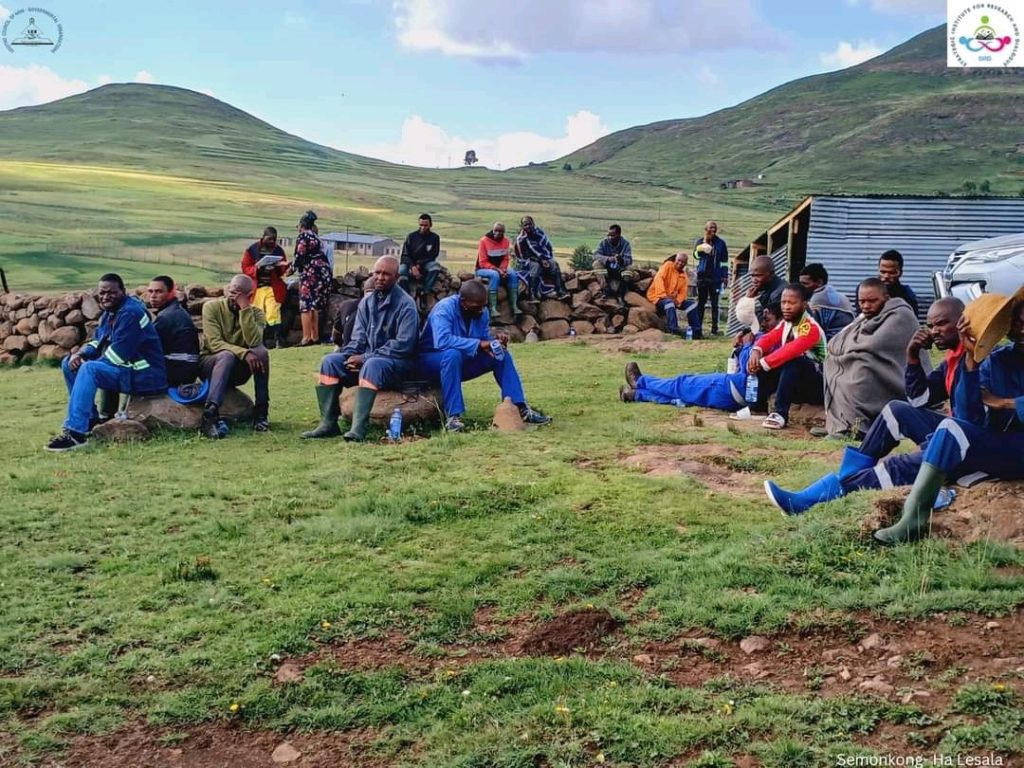
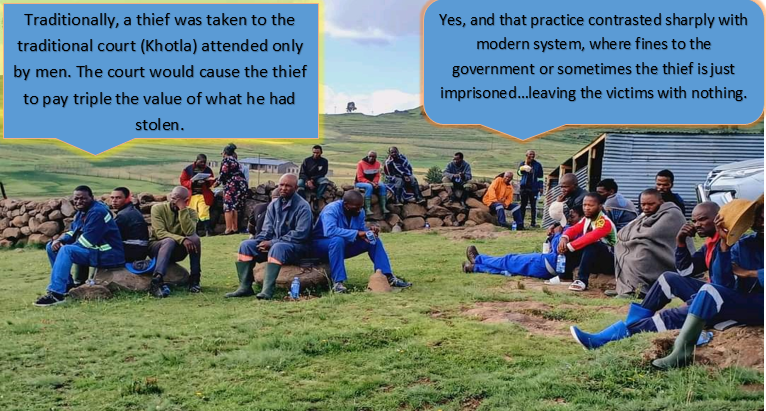
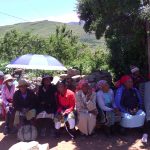
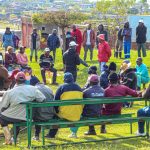
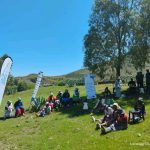

Leave a comment